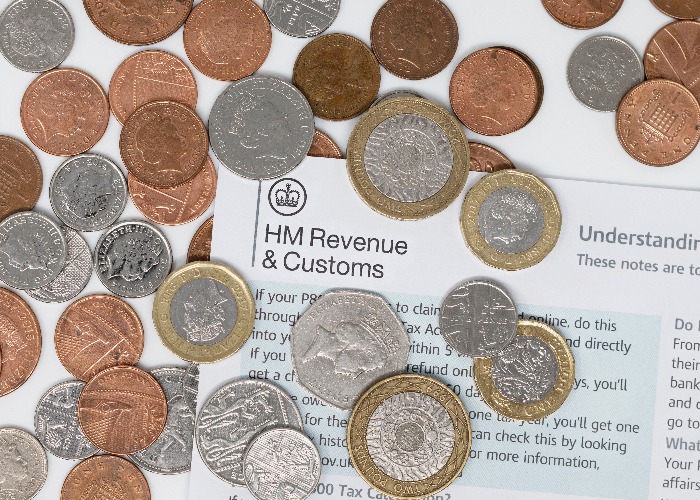Opinion: taxman must accept blame for the rise in people using third-party claim firms

Going through a third party to get a tax refund means giving up as much as 50% of your payout, yet some feel they have no choice due to the complexity of the process.
While paying tax isn’t exactly fun, most of us don’t begrudge paying a fair amount that goes towards funding our public services.
The problem comes when we pay, or have paid, more than we needed to.
Claiming a refund or a relief from the taxman is possible, but a new study makes clear that some people are putting off doing so directly and using third-party firms instead, which then claim a commission of as much as 50% of the refund.
It’s a massive rip-off, and ultimately the taxman itself is to blame for it.
I need help
HM Revenue & Customs has published some research it commissioned, looking at the people who turn to third parties to help them claim tax refunds and reliefs, with the intention of finding out what sort of taxpayers are most likely to do this ‒ and why.
The study found that these claimants fell into four main categories:
-
‘Opportunists’ who saw an advert from a third party firm and decided to give it a go as they had nothing to lose;
-
‘Time optimisers’ who felt confident about applying directly to the taxman, but felt that a third party would make getting the money back hassle-free;
-
There was also a group of ‘financial/language barrier’ taxpayers, those who perhaps don’t have great literacy skills or were in financial difficulties and looking for extra income;
-
Finally, there was the ‘uncertain’ group, those who lacked confidence in their ability to claim directly or were simply unaware that it was even possible to do so.
Why not go direct?
Perhaps the most important section of the report covers precisely why people opt to turn to these advisory firms when they need help with a tax relief or refund, rather than going straight to HMRC.
It found that it was actually rare for these taxpayers to even consider applying directly for a refund, for a variety of reasons.
Sometimes it was because they weren’t aware that they could, or they didn’t have the confidence or perceived time to do so.
This is pretty worrying. The idea that taxpayers don’t think they can request a refund from the taxpayer directly, and instead are compelled to use a firm that will take a significant chunk of that refund, is frankly bonkers.
Similarly, the fact that so many people think that requesting their money back takes some level of expertise, or a large time requirement, should be deeply concerning.
Most frighteningly of all, some of those who turned to third party firms actually thought they were applying directly to HMRC.
That says an awful lot about how poorly the taxman signposts the official routes for claiming these reliefs as much as it does about the shoddy job the regulators do of policing the adverts these firms run online, which allow them to essentially pose as the taxman itself.
Learning lessons
There are clear lessons for the taxman to take from this study.
Firstly, the existing process is too shrouded in mystery. It’s unacceptable that taxpayers give up money they are owed simply because the current method of claiming the refunds directly is seen as being too complicated, or requiring a significant dedication of time.
What’s more, the taxman must do a better job of signposting how people can claim that money back. Too many people feel they have to use these firms because they don’t understand the current process.
Improving this won't be an overnight fix, but there are some obvious steps that would help.
Clearer language on the taxman’s website, as well as education campaigns across the media to reduce anxiety about even trying to claim money back, would be a good start.
There’s no doubt that we need the likes of Google to do a much better job policing firms’ adverts too. For anyone to end up using one of these firms, thinking they are dealing with the taxman instead, is appalling.
We need a taxman that we can trust, a taxman who takes the right amount and makes the process of claiming back reliefs and overpayments straightforward.
Comments
Be the first to comment
Do you want to comment on this article? You need to be signed in for this feature